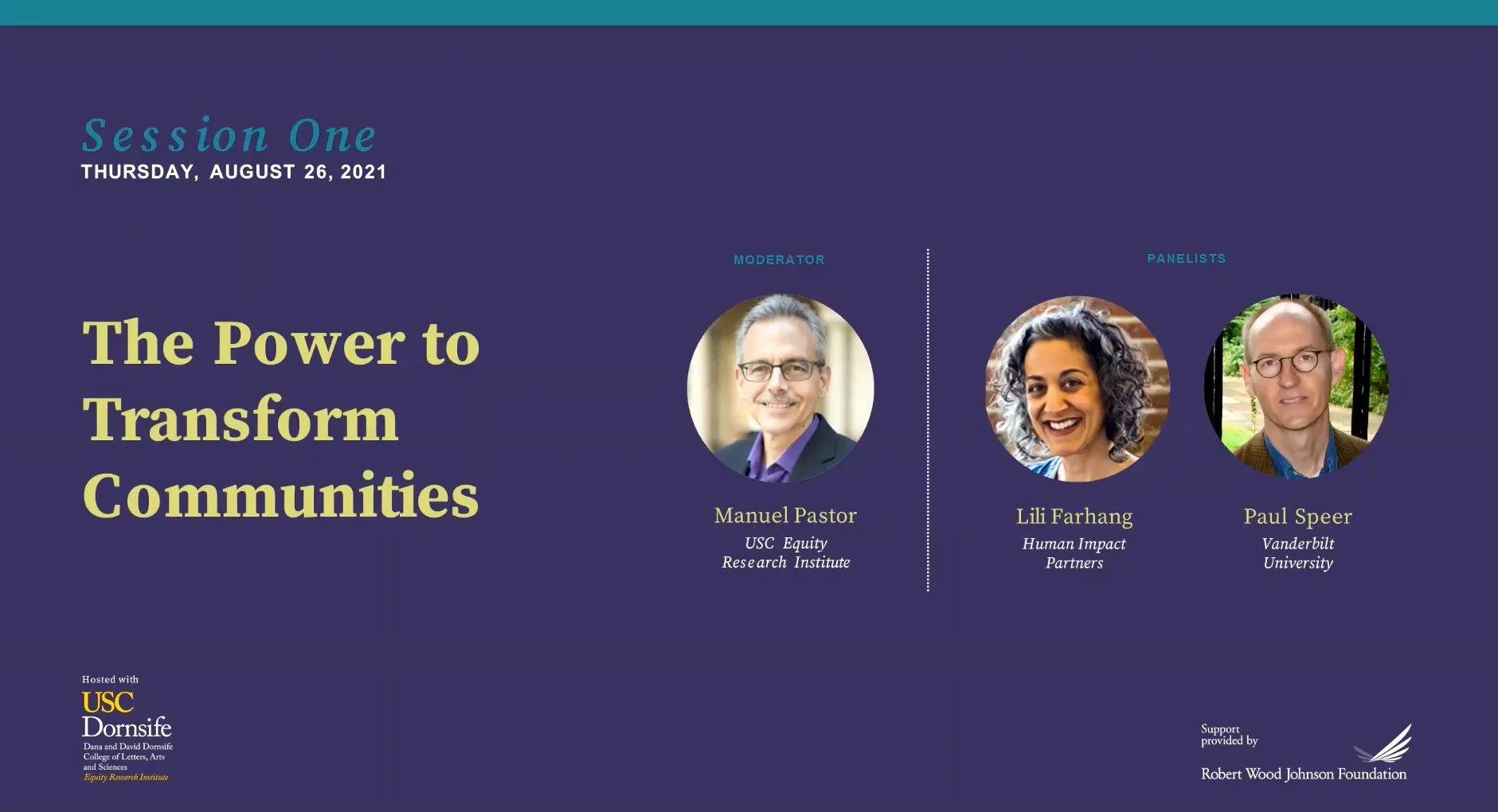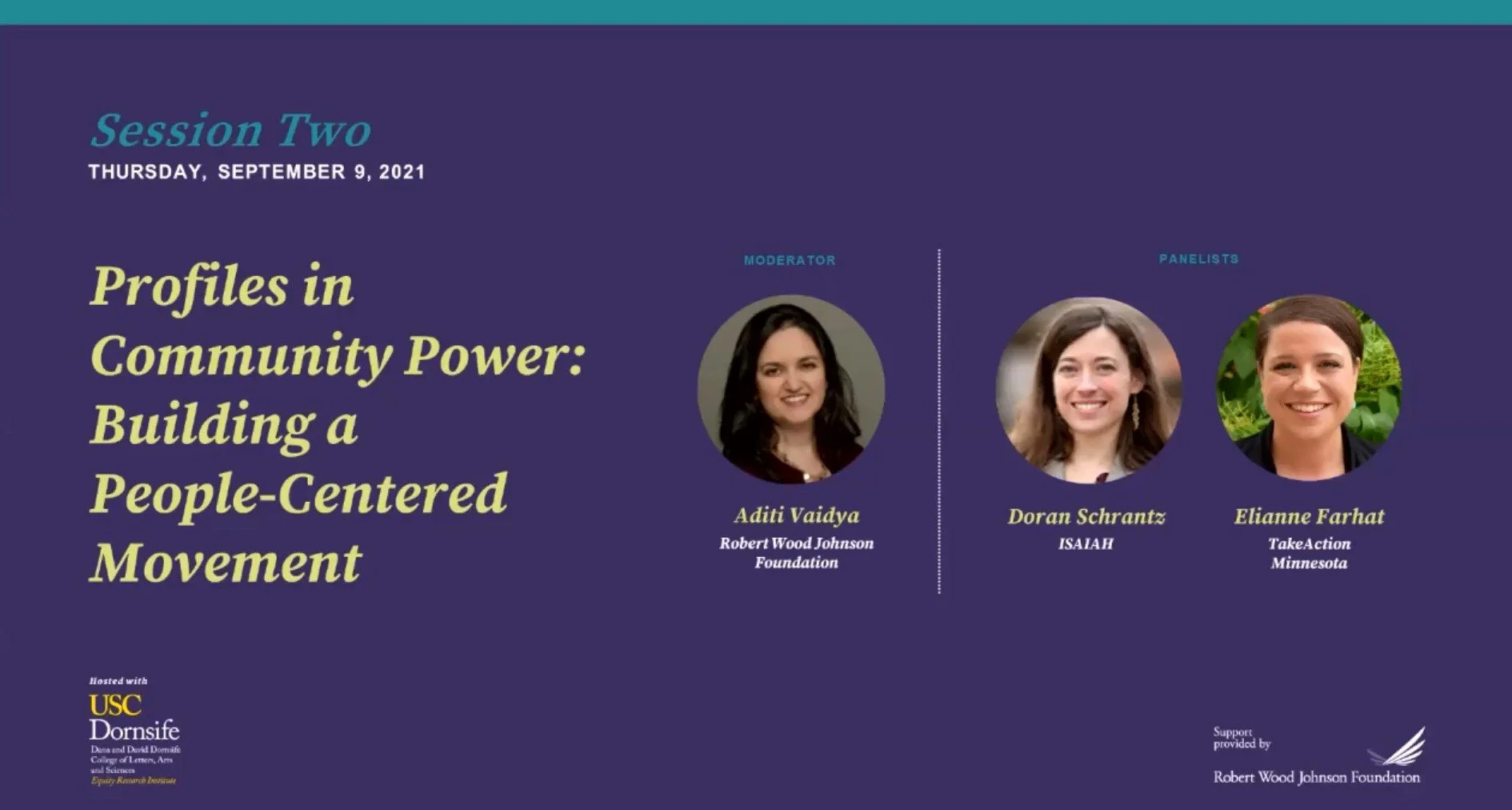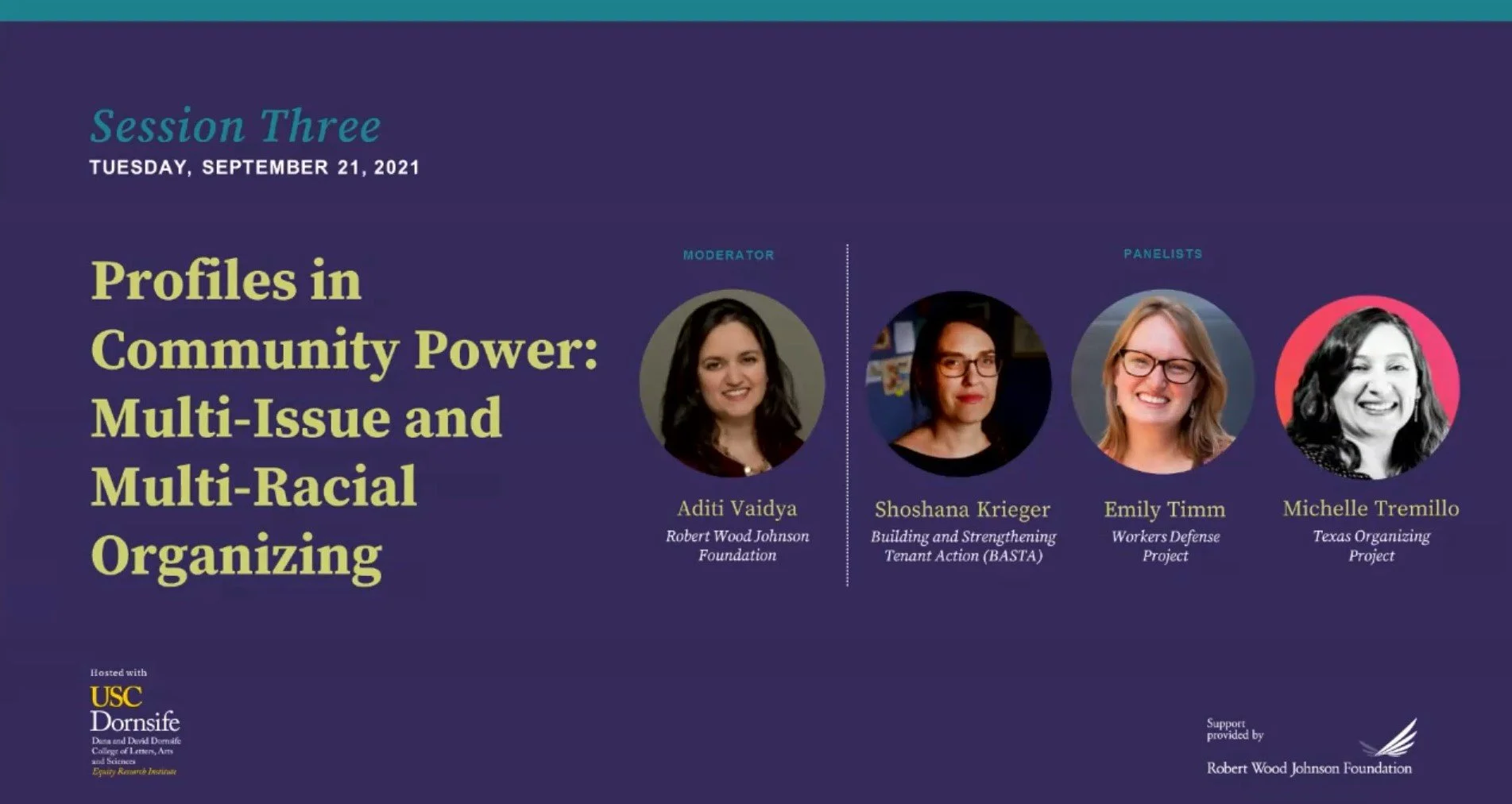Lead Local Videos
Answering the Lead Local North Star question
The Lead Local grantees show how does community power catalyzes, creates and sustains conditions for healthy communities.
On the ground
Up close with local place-based power building organizations.
Community Power Building in Denver
Community Power building in Atlanta
About Lead Local
Exploring the connections between community power and healthy communities.
Full Length Overview
Short Overview
Lead Local Webinar Recordings
Exploring Community-Driven Change and the Power of Collective Action
A Four-Part Webinar Series
As we continue to confront deep structural inequities tied to health, opportunity, race, and place in our nation—all compounded by COVID-19—how does building community power offer a roadmap up and out? How does power catalyze, create, and sustain conditions for healthier communities? How is it built and how does it shift over time? How does it go beyond community engagement and how can it be measured?
Lead Local, a collaborative effort funded by the Robert Wood Johnson Foundation, brought together well-respected local power-building leaders and practitioners in the fields of community organizing, advocacy, public health, and science to answer these and other questions.
If you are working to advance health and racial equity, this deep dive into the diverse field of community power-building is not to be missed. In this four-part webinar series we hear directly from the Lead Local grantees and field partners—including city and state organizations that are mobilizing communities around issues ranging from transportation to housing, health care to labor rights.
Session 1 | The Power to Transform Communities
Distinct from community organizing and engagement, power is both fundamental and instrumental to transforming inequitable conditions in communities and tackling structural inequities, including racism. This conversation between researchers and practitioners will offer a baseline understanding of community power—from defining to building and measuring it—and why it should be at the center of any work that aims to advance health and racial equity.
With Manuel Pastor of the USC Equity Research Institute; Lili Farhang of Human Impact Partners; and Paul Speer of Vanderbilt University
Session 2 | Profiles in Community Power: Building a People-Centered Movement
Last year, Minneapolis was an epicenter of organizing for racial equity and justice with the police killing of George Floyd—but these kinds of movements aren’t built overnight. Local groups have been building an ecosystem grassroots organizing and experimenting with new strategies to strengthen collective action for decades—all toward the goal of building community power. This conversation will shed light on how state and local organizations are moving forward in these challenging times, sharing resources and skills, and focusing on both legislative and administrative arenas of change.
With Aditi Vaidya of Robert Wood Johnson Foundation; Doran Schrantz of ISAIAH; and Elianne Farhat of Take Action Minnesota
Session 3 | Profiles in Community Power: Multi-Issue and Multi-Racial Organizing
Long-term change in Texas—a state often defined by its fast-growing urban hubs, shifting demographics, income inequality, and extractive industries—requires strategies to shift mindsets, power, and policy. That’s why state and local organizations have worked tirelessly to align around a long-term vision to tackle voter suppression and defend worker and tenant rights. These organizations were able to leverage these strong relationships to deploy mutual aid in the wake of this year’s devastating winter storm. This conversation will unpack how multi-issue, multi-racial coalitions are built and sustained and their impact in terms of advancing health and equity.
With Aditi Vaidya of Robert Wood Johnson Foundation; Shoshana Krieger of Building and Strengthening Tenants Action, a project of Texas RioGrande Legal Aid, Inc.; Emily Timm of the Workers Defense Project; and Michelle Tremillo of the Texas Organizing Project.
Session 4 | The Power to Change Policies and Systems
Why is structural reform necessary to achieve health and racial equity— and how is community power fundamental to it? From Georgia to Maine, grassroots power-building organizations are making transportation, housing, and health care more equitable through policy change and structural reform. Tune into this conversation for insights into the strategies and pathways pursued and what it takes to hold ground when policy change is won.
Jennifer Ito of the USC Equity Research Institute; Deborah Scott of Georgia STAND-UP; and Jesse Graham of the Maine People’s Alliance








